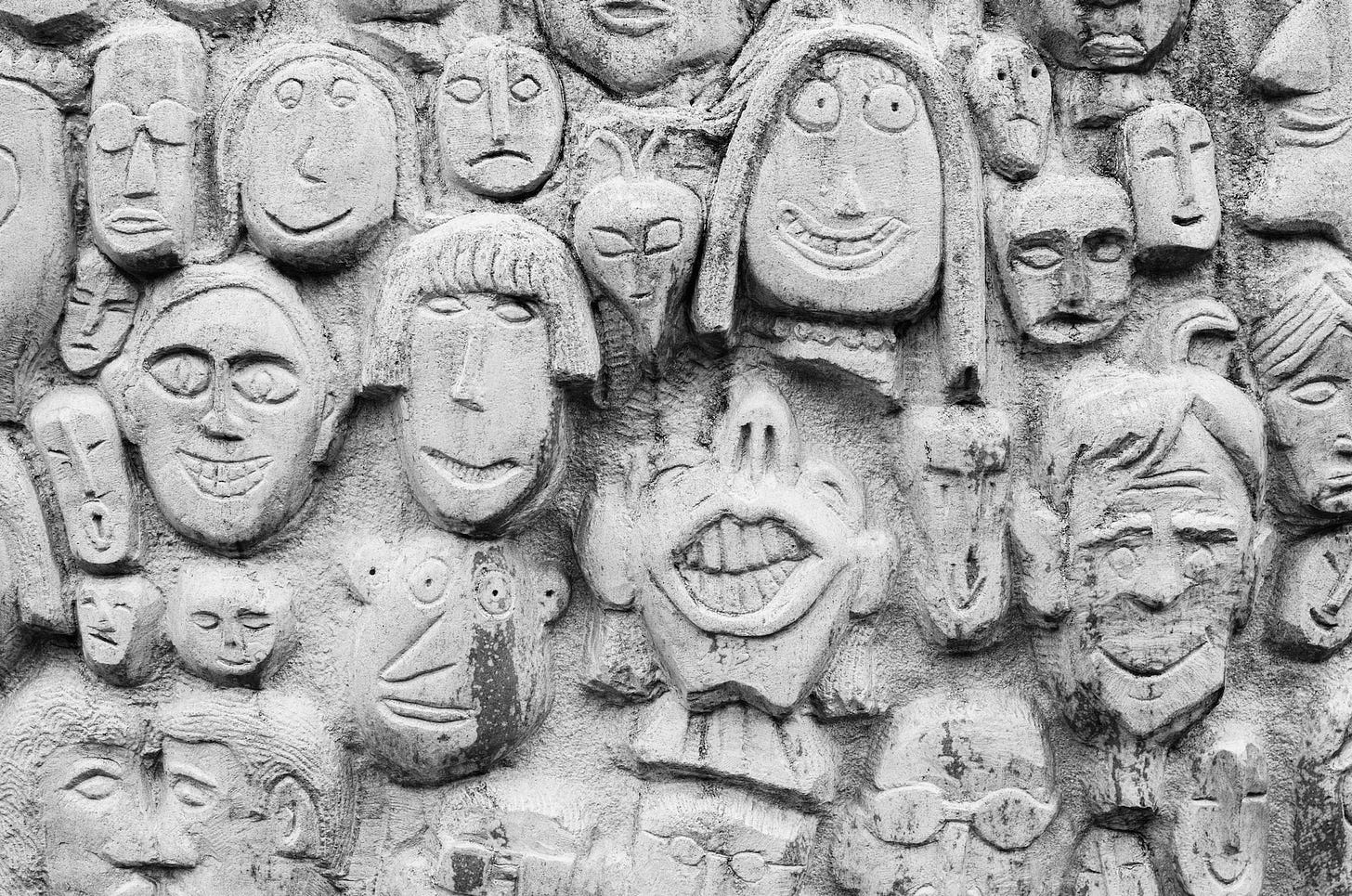Exclusion or disparate exformation?
Here are two ideas from my book, Reconstructing Inclusion: Making DEI Accessible, Actionable, and Sustainable and other texts I leaned on in writing it. In addition, I’ve included one quote, a book recommendation, and a video or article that has inspired or influenced me and hopefully will resonate with you, too. (That’s ✌🏿+ 💡📚➕).
Page 153-154
Johnson Blick
My father, Larry D. Johnson Sr., was my first hero. Well, maybe my brother, Larry Jr., and my dad captured that space simultaneously. Nonetheless, I soaked everything up from them that I could. Where my father was concerned, this came down to the way he walked, talked (think James Earl Jones combined with the actor Richard Roundtree’s character in the 1970s Shaft films), and especially his facial expressions in different situations—from his Muhammad Ali–like animated expression of opening his eyes when saying something humorously or provocatively to his slightly furrowed brow that left a distinct line in his forehead perpendicular to his eyebrows when he was thinking through something, whether he was listening or sharing something he was focused on. I mimicked his actions, tone of voice, and facial expressions.
Little did I know, I would unwittingly mirror him until this day. My father’s brothers and sister all have variations on our furrowed brow facial expression. My brother often had it. My niece is now twenty-two years old and has been making the expression since she was very young. Most recently, my son (at as early as six months of age) makes the same facial expression when presented with new data (which is pretty much all of the time). We could see him make the expression at two months, and when my twin step-children first observed it, the girl twin, Romy, coined the phrase “Johnson Blick.” Blick is a German word equivalent to “look” or “expression.”
So, my son Kai, like his grandfather, great-uncles and -aunts, uncle, father, and cousin, exhibits the Johnson Blick in situations where he is processing something. Kai never has had the chance to know his grandfather or uncles (except for his youngest great-uncle a few times), and he occasionally sees his cousin on camera. He sees me, but given the acuity of a newborn’s vision, it is hard to say if the Johnson Blick is nurture, nature, or some combination of the two. In any scenario, it doesn’t matter. If you are a Johnson (or maybe even a descendent of my paternal grandmother, whose maiden name was Jackson), as Prince said, “you’ve got the look.”
Photo by Andrew Seaman on Unsplash
Page 155, 157
Exformation
"Exformation is a term coined by Tor Nørretranders, a Danish journalist and author, in his 1991 book, The User Illusion. Nørretranders’s book explored consciousness as an idea. While a lot of learning in organizations has been about unconsciousness for the past several years, Nørretranders questioned the notion of consciousness. A data point often used in unconscious bias training comes from Nørretranders. He concluded, “The flow of information, measured in bits per second is described as the bandwidth of capacity of consciousness. The bandwidth of consciousness is far lower than the bandwidth of our sensory receptors.” Nørretranders questions the significance and relevance of the phenomena of consciousness.
. . .
Nørretranders states, “Our consciousness is our user illusion for ourselves and the world. The user illusion is one’s very own map of oneself and one’s possibilities of intervening in the world.” The second sentence above makes consciousness sound a lot like agency. Does consciousness give us a sense of control or lack thereof? Or is the iteration of eleven million bits per second of information that needs to be discarded to conclude how one’s level of control or sense of agency occurs to oneself?
It’s the discarded information, or exformation, that I find most relevant to how we view exclusion. Nørretranders says that our interpretation of information is closer to exformation. “Exformation is what is [excluded] en route, before expression. It is about the mental processing that we do to make what we say meaningful. It is all the information in our heads that we discard to make sense. This is not always the case because, as the author states, “We have no idea of the exformation in most of the messages we hear. We guess, sense, and support—but we do not know.
Our framing for exclusion can be different. What seems like acts of exclusion could simply be, and probably often are, that we have disparate exformation.”
💡A Quote
“Many people in trying to insulate young people from adversity, insulate them from the things that give them strength.”
― Thomas Sowell
📚A Book
Photo Credit: Amazon.com
The Prophet by Kahlil Gibran
➕A Video
How we need to remake the internet | Jaron Lanier
A note: Jaron Lanier’s lectures are dense. He is why I stayed away from Facebook and why it is worthwhile for all of us to be VERY mindful of how we consume data from our social networks.
I hope this was helpful. . . Make it a great day! ✌🏿
In this episode of the ‘Reconstructing Inclusion’ podcast, I am joined by three key members of the Diversity Atlas team. Gain insights into how inclusive data sets and nuanced categorizations enable a richer understanding of cultural nuances and support strategic decision-making in your DEI efforts.





